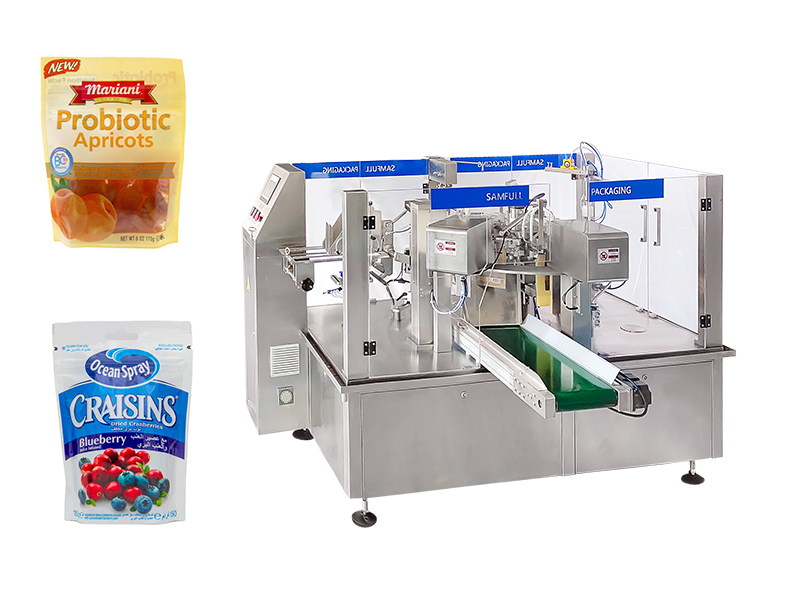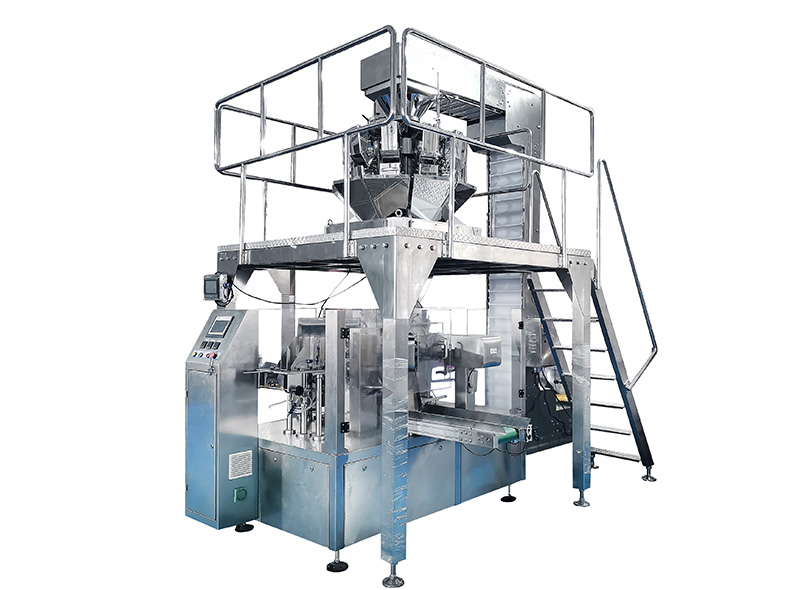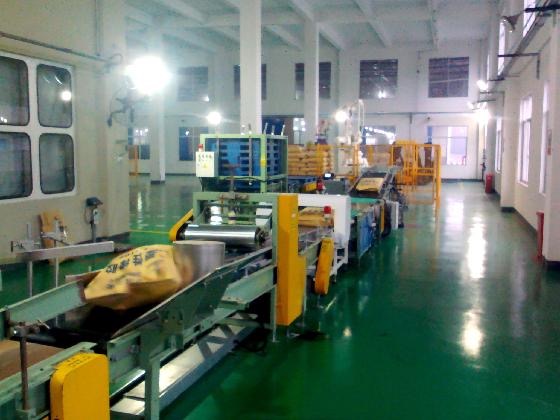
Content Menu
● Introduction
● Understanding Dry Food Packing Machines
>> Types of Dry Food Packing Machines
● Key Features of Modern Dry Food Packing Machines
>> 1. Automation and Efficiency
>> 2. Versatility
>> 3. Hygiene and Food Safety
>> 4. Integration with Industry 4.0
>> 5. Sustainability Features
● The Impact of Dry Food Packing Machine Factories on the Industry
>> Increased Productivity
>> Improved Product Quality and Consistency
>> Enhanced Food Safety
>> Cost Reduction
>> Innovation in Packaging Design
● Choosing the Right Dry Food Packing Machine
● The Future of Dry Food Packing Machines
● Case Study: Implementing a New Dry Food Packing System
● Conclusion
● Frequently Asked Questions
>> Q1: What are the main advantages of using a dry food packing machine?
>> Q2: How do I choose the right dry food packing machine for my business?
>> Q3: Are dry food packing machines suitable for small businesses?
>> Q4: How do dry food packing machines contribute to food safety?
>> Q5: What maintenance is required for dry food packing machines?
Introduction
In today's fast-paced food industry, efficiency and quality are paramount. Dry food packing machine factories have emerged as the backbone of modern food packaging, offering innovative solutions to meet the growing demands of consumers and businesses alike. This comprehensive guide will delve into the world of dry food packing machines, exploring their importance, types, features, and the impact they have on the food packaging industry.
Understanding Dry Food Packing Machines
Dry food packing machines are specialized equipment designed to package a wide variety of dry food products efficiently and hygienically. These machines automate the process of measuring, filling, and sealing packages, ensuring consistency and reducing human error. From grains and nuts to powders and snacks, dry food packing machines handle a diverse range of products with precision and speed.
Types of Dry Food Packing Machines
1. Vertical Form Fill Seal (VFFS) Machines
2. Horizontal Form Fill Seal (HFFS) Machines
3. Multi-head Weighers
4. Auger Fillers
5. Volumetric Cup Fillers
6. Pouch Filling Machines
Each type of machine is designed to cater to specific packaging needs, product types, and production volumes. For instance, VFFS machines are ideal for creating bags from a roll of film, while multi-head weighers excel at handling products with varying weights and sizes.

Key Features of Modern Dry Food Packing Machines
1. Automation and Efficiency
Modern dry food packing machines are highly automated, significantly reducing the need for manual labor and increasing production speed. Advanced sensors and control systems ensure precise measurements and consistent packaging quality.
2. Versatility
Many machines are designed to handle multiple product types and packaging formats, allowing manufacturers to adapt to changing market demands quickly.
3. Hygiene and Food Safety
Stainless steel construction and easy-to-clean designs ensure that machines meet strict food safety standards. Some models even incorporate UV sterilization or nitrogen flushing capabilities to extend product shelf life.
4. Integration with Industry 4.0
The latest dry food packing machines are equipped with IoT capabilities, allowing for real-time monitoring, predictive maintenance, and seamless integration with other production line equipment.
5. Sustainability Features
As environmental concerns grow, many machines now offer options for using eco-friendly packaging materials and reducing waste during the packaging process.
The Impact of Dry Food Packing Machine Factories on the Industry
Increased Productivity
Dry food packing machine factories have revolutionized the food packaging industry by dramatically increasing production rates. A single machine can often replace several manual packaging lines, allowing companies to meet growing demand without significantly expanding their workforce.
Improved Product Quality and Consistency
Automated packaging ensures that each package contains the exact amount of product, reducing overages and maintaining consistent quality. This precision not only improves customer satisfaction but also helps companies optimize their raw material usage.
Enhanced Food Safety
By minimizing human contact with food products, dry food packing machines reduce the risk of contamination. Advanced sealing technologies also help extend product shelf life, ensuring that food remains fresh and safe for consumption.
Cost Reduction
While the initial investment in dry food packing machinery can be substantial, the long-term benefits often result in significant cost savings. Reduced labor costs, improved efficiency, and decreased product waste all contribute to a healthier bottom line for food manufacturers.
Innovation in Packaging Design
The capabilities of modern packing machines have allowed for greater creativity in packaging design. From stand-up pouches to resealable bags, manufacturers can now offer packaging solutions that enhance product appeal and functionality.

Choosing the Right Dry Food Packing Machine
Selecting the appropriate dry food packing machine is crucial for maximizing efficiency and return on investment. Factors to consider include:
1. Product type and characteristics
2. Desired packaging format
3. Production volume requirements
4. Available floor space
5. Budget constraints
6. Future scalability needs
It's essential to work closely with reputable dry food packing machine factories to ensure that the chosen equipment aligns with specific business needs and goals.
The Future of Dry Food Packing Machines
As technology continues to advance, the future of dry food packing machines looks promising. Some emerging trends include:
1. AI-powered quality control systems
2. Increased use of robotics for product handling
3. Development of more sustainable packaging solutions
4. Enhanced customization capabilities for small-batch production
5. Integration of blockchain technology for improved traceability
These innovations will further enhance the efficiency, flexibility, and sustainability of dry food packaging operations.
Case Study: Implementing a New Dry Food Packing System
To illustrate the impact of modern dry food packing machines, let's consider the case of a medium-sized snack food manufacturer. By investing in a state-of-the-art VFFS machine with integrated multi-head weigher, the company was able to:
1. Increase production capacity by 150%
2. Reduce packaging material waste by 30%
3. Decrease labor costs by 40%
4. Improve product consistency, leading to a 25% reduction in customer complaints
5. Introduce new packaging formats, resulting in a 15% increase in sales
This case demonstrates the transformative potential of investing in advanced dry food packing machinery.
Conclusion
Dry food packing machine factories play a crucial role in shaping the future of the food packaging industry. By offering innovative, efficient, and versatile solutions, these factories enable food manufacturers to meet the ever-growing demands of the market while maintaining high standards of quality and safety. As technology continues to evolve, we can expect even more exciting developments in the field of dry food packaging, further revolutionizing the way we produce and consume packaged foods.

Frequently Asked Questions
Q1: What are the main advantages of using a dry food packing machine?
A1: The main advantages include increased productivity, improved product consistency, enhanced food safety, reduced labor costs, and the ability to handle a wide variety of packaging formats and materials.
Q2: How do I choose the right dry food packing machine for my business?
A2: Consider factors such as your product type, desired packaging format, production volume, available space, budget, and future scalability needs. It's also advisable to consult with reputable dry food packing machine factories to get expert recommendations.
Q3: Are dry food packing machines suitable for small businesses?
A3: Yes, there are dry food packing machines available for various production scales, including smaller operations. Many manufacturers offer compact and versatile machines that can be a good fit for small businesses looking to automate their packaging process.
Q4: How do dry food packing machines contribute to food safety?
A4: These machines minimize human contact with food products, reducing the risk of contamination. They also often incorporate features like UV sterilization or nitrogen flushing to extend product shelf life. Additionally, their precise sealing capabilities help maintain product freshness and prevent contamination during storage and transportation.
Q5: What maintenance is required for dry food packing machines?
A5: Regular maintenance typically includes cleaning, lubricating moving parts, checking and replacing wear components, and calibrating weighing systems. Many modern machines come with self-diagnostic capabilities and predictive maintenance features to help optimize maintenance schedules and minimize downtime.












